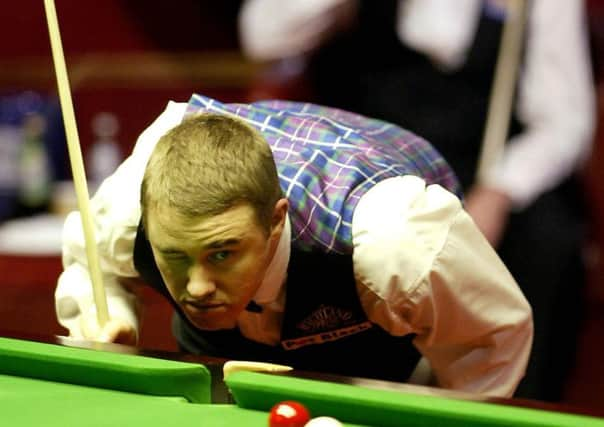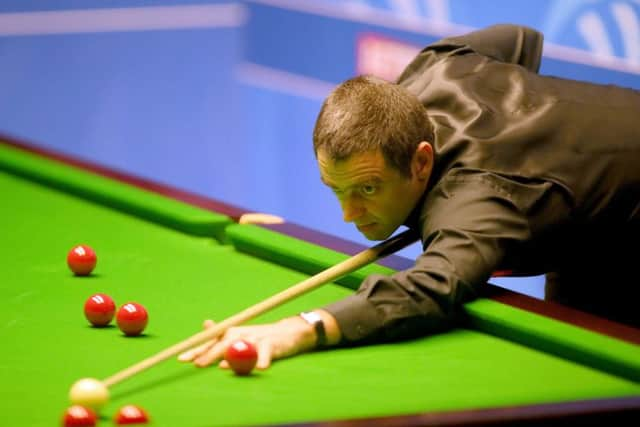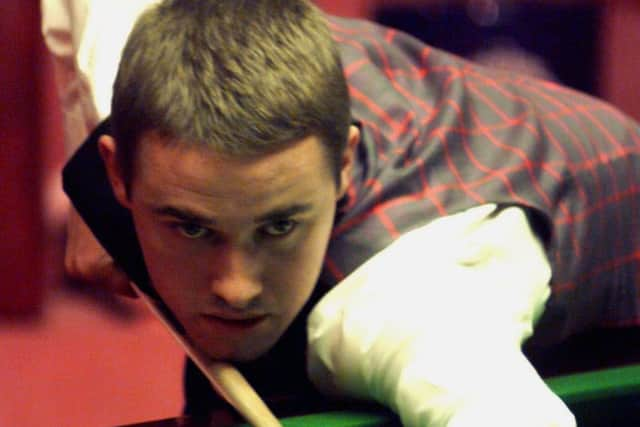Bygones - The day Stephen Hendry and Ronnie O’Sullivan delivered ‘snooker from the gods’ at the Crucible


And the 43-year-old – who took over as World No 1 from Mark Selby last month – shows no signs of slowing down, as he continues to be the one to beat in the world of snooker.
Despite reducing the number of tournaments he competes in, this season O’Sullivan has already bagged the UK Championship, Champion of Champions, Players Championship, Shanghai Masters and the Tour Championship.
Advertisement
Hide AdAdvertisement
Hide AdAnd if he wins the world title in Sheffield for the sixth time, O’Sullivan will break the record of 36 career ranking titles, a privilege he currently shares with Stephen Hendry.


The Scot has topped the all-time ranking event winner’s list for over 21 years, since winning the 1998 Thailand Masters.
So it would be almost fitting for O’Sullivan to make history at the home of snooker, this year marking the 20th anniversary of one of the best matches seen in Sheffield.
That was the 1999 semi-final, when Hendry won the last of his seven world titles, beating the young challenger to his Crucible throne, O’Sullivan, over four sessions in the penultimate round.
Advertisement
Hide AdAdvertisement
Hide AdHendry won 17-13, but that does little to describe a contest which commentator Clive Everton famously described as “snooker from the gods”.


O’Sullivan was 23, and while he was pure box office attraction, he had not yet conquered the Crucible, an event which Hendry dominated in the Nineties. It was a defeat which would prove to be a real turning point in O’Sullivan’s career.
“It was his back yard, and it was easy to feel like an afterthought at the beginning. That comes from winning five world titles on the trot,” O’Sullivan recalled in The Crucible’s Greatest Matches, the excellent book by journalist Hector Nunns, which covers 40 years of the World Championship in Sheffield.
“I was not by that time confident I could beat Stephen over 33 frames in what everyone saw as his back yard at the Crucible.”
Advertisement
Hide AdAdvertisement
Hide AdAfter the opening three frames, O’Sullivan had failed to score a single point, as Hendry reeled off 295 points without reply.
“I remember beginning the match with a 126 and that was something I tried to do, and actually did quite a lot when I was playing well and focused – start strongly with a big break, trying to stamp my authority on the match,” said Hendry.
Lesser players would have crumbled – Matthew Stevens having been swept aside 13-5 by Hendry in the quarter-finals – but O’Sullivan kept in touch to trail 6-2 after the first session.
And it was 6-6 – after breaks of 67, 122 and 135 – saw O’Sullivan level, before Hendry took the final two frames to lead 9-7 overnight.
What followed on Saturday was pure class.
Advertisement
Hide AdAdvertisement
Hide AdHendry fired off 104, 101 and 108, O’Sullivan responded with breaks of 81, 84, 134 – the missed pink costing him a maximum break and £167,000 bonus – and 110 to enter the final session locked at 12-12.
Hendry said: “Probably the thing I remember most about that semi-final, apart from actually winning, was the burst of four centuries in a row in the third session.
“That was what Ronnie and I could produce when we were both playing well at the same time.”
O’Sullivan took the lead for the first time in the match, taking the evening’s opening session, but the turning point in the contest came in frame 26.
Advertisement
Hide AdAdvertisement
Hide AdOn a break of 32, looking set to go 14-12 in front, O’Sullivan missed a red with the rest. It was a pivotal moment, as Hendry reeled off the next five frames to secure a final against Mark Williams.
“These moments are so huge, because after that I hardly saw a ball,” reflected O’Sullivan.
“He cleared up to win that frame and make it 13-12, as was his trademark.
“And then I got frozen out, just didn’t get a look-in as he won the last five frames.
Advertisement
Hide AdAdvertisement
Hide Ad“But that final session of this match was a huge turning point in my career. At 13-12 up and with the frame at my mercy, I thought ‘I have got him here’.
“Then I missed that red with the rest on 32, I got nervous and he just got stronger and more and more aggressive, more attacking and more dangerous while I was going into my shell.
“And I came away from that session knowing if I was going to win a world title, which I hadn’t at that time, and major titles, I had to find a bit more.
“I had to go into final sessions and be even more aggressive, and grab matches by the horns exactly as Stephen did in this match.
Advertisement
Hide AdAdvertisement
Hide Ad“It changed me, they often say you learn more from a defeat than a victory.
“He had done it to me in the past, but this was the Crucible and I knew I had to learn to thrive on the pressure as he did in this arena.
“If I didn’t do that then I was always going to be the bridesmaid because this is where world champions were made – in the final session at the Crucible.”
Two years later, O’Sullivan claimed his first world title in 2001, and few would bet against the Rocket claiming his sixth Crucible crown – his last one was six years ago in 2013 – come Monday May 6.